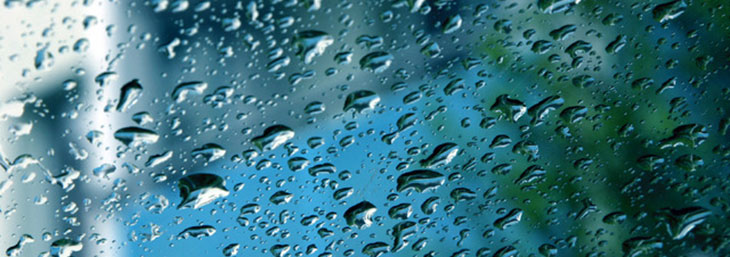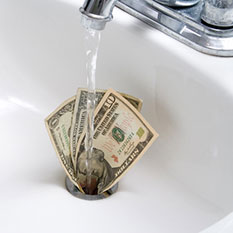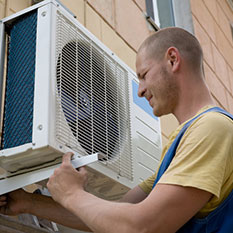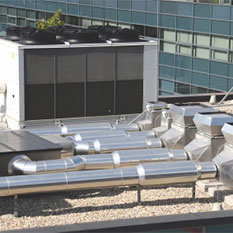
Posted: July 25, 2019 at 9:40am
By: Lakes Region HVAC
New Hampshire homeowners and business owners may feel like hurricanes are only a concern for more southern New England states, like Massachusetts, Connecticut, and Rhode Island. However, according to one scientific study, New Hampshire may start experiencing these potentially devastating storms.
A recent study led by climate scientists Andra Garner, from Rutgers University, and David Pollard, from Pennsylvania State, revealed the paths of hurricanes are moving north, and the storms are more frequently impacting New England rather than mid-Atlantic states. Because the frequency of hurricanes and severe flooding hasn’t been common in northern New England states, many are woefully unprepared for the high winds and flooding brought on by hurricanes, according to Michael Graw, a freelance science writer and photographer with a Ph.D. in Oceanography from Oregon State University.

For instance, in 2011, Vermont experienced severe flooding in the wake of Hurricane Irene, which wasn’t a hurricane when it hit the Green Mountain State but caused more than $700 million in damage.
Whether your home or business is along New Hampshire’s 18 miles of coastline or near one of its 1,000 lakes, protecting your HVAC system from hurricane conditions is more important than ever. Here are 4 tips for hurricane protection for HVAC systems in your home, vacation home, or business:
The Federal Emergency Management Agency (FEMA) identifies the anticipated floodwater line during a base flood as the base flood elevation (BFE). The BFE for your area is easily found on a Flood Insurance Rate Map (FIRM) and at FEMA’s Flood Map Service Center (https://msc.fema.gov/portal).

When a heat pump or air conditioning condenser is installed, the unit is mounted on a concrete slab located in a convenient spot on the side or back of the building. For most areas in New Hampshire, this simple foundation is generally accepted. However, in coastal and lakefront areas, water levels can easily rise above the thin foundation in hurricane and flood conditions, which will certainly damage your HVAC equipment. After finding your area’s BFE, build a concrete or brick foundation to mount your heat pump on that extends higher than the BFE + 1 foot.
In order to achieve this elevation on homes located on the coast, the heat pump or condenser may need to be mounted on a cantilevered platform, which FEMA recommends as a solution.
A Category 2 hurricane, which is considered “minor” by FEMA, has sustained winds of 96–110 mph, according to the Saffir-Simpson Hurricane Wind Scale. Winds at these speeds can topple shallow-rooted trees and cause roof and siding damage to well-constructed houses, according to the National Oceanic and Atmospheric Administration (NOAA).

Homeowners should clear the yard of branches, patio furniture, toys, lawn decorations, and everything else not anchored to the ground. Owners of seasonal rental properties should contact a neighbor or property management company to pick up the yard if they can’t do it themselves.
Business owners should pick up the alley or parking lot area near their HVAC equipment.
A good additional layer of protection against such hazards is to cover your heat pump or A/C condenser unit with a plywood enclosure or at least a tarp to protect it from flying debris, FEMA says.
A power surge is a brief spike in electrical current. A surge can be caused by lightning or power returning after an interruption, and it may last less than a thousandth of a second. However, it can ruin today’s sensitive, energy-efficient heating and cooling equipment.
No matter where on the Saffir-Simpson Hurricane Wind Scale a hurricane may fall, it’s expected to cause power outages for up to several months. To avoid the power spike when electricity returns, turn off power to your HVAC equipment at the circuit breaker. By disconnecting it from the power grid in this way, the power surge won’t reach the heat pump or condenser.
Second home owners who don’t have property managers may consider installing a whole home surge protector to protect your home’s entire electrical system in the event no one can access the circuit box.
After a disaster, 90% of smaller companies fail within a year unless they resume operations within 5 days, according to FEMA. Of course business owners want to get up and running again, fast. Homeowners want to be comfortable, again. But, turning on your HVAC system without an inspection can be catastrophic for your equipment.

All roof and ground equipment should be inspected by a factory-trained and fully licensed HVAC technician. Even if there aren’t apparent signs of physical damage, unseen damage may exist inside the unit. Whether your unit sat in floodwater or high winds blew water into it, the electrical system in the heat pump or A/C condenser could be compromised.
Don’t let a small fix escalate into total equipment failure—make an appointment for your regular HVAC service provider to inspect your unit before turning it back on.
Not on a regular maintenance plan? Hire a nearby HVAC contractor to send a factory-trained, fully insured HVAC technician to perform an inspection and ask about the benefits of signing onto a maintenance plan. You’ll discover your HVAC system will run better and last longer.
If this article is useful to you, or if you know someone who can benefit from it, please Share it.
Have another question? Contact the Lakes Region team, and we’ll find your solution.
Our clients are homeowners, small business owners, and corporations—and one could be you by calling 603-286-2290 or emailing info@lrhvac.com.
Lakes Region’s expert service technicians and installers are trained in the latest advancements in heating and cooling technologies. We'll help you select the correct comfort system for your home, ensuring that your equipment operates at the highest efficiency — giving you the lowest monthly operating cost.
Visit our website.
LRHVAC’s office hours: Monday - Friday
7:30-4:30
Phone: 603-286-2290
Mail: 86 Bay Hill Rd., Northfield, NH 03276
Email:
Email us